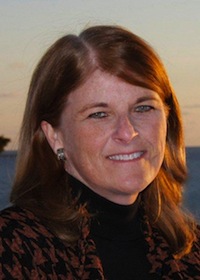
June 15th, 2011 by Michael Kirsch, M.D. in Opinion
Tags: Autonomy, Emory, Government, Medical School, Next Generation, Pay For Performance, Physicians, Pre-Med, Robotics, Shift Work, Telemedicine
No Comments »

 At this writing, I am in Atlanta visiting our daughter at Emory University. This may be the only college campus in the nation where you can’t buy Pepsi. Coke is King here. If you don’t know this, do some due diligence before you or someone you love interviews here.
At this writing, I am in Atlanta visiting our daughter at Emory University. This may be the only college campus in the nation where you can’t buy Pepsi. Coke is King here. If you don’t know this, do some due diligence before you or someone you love interviews here.
I remember a few decades interviewing at the medical school here. There are only 2 medical school interviews that I recall after all these years. At N.Y.U. School of Medicine, the canny interviewer asked me what the death rate of Americans is. I correctly responded, “100%”. I suppose that untangling enigmatic questions was an N.Y.U. admission requirement, since they did accept me, and I did attend. The other medical school interview I still recall was at Emory, although it’s not the questions I remember. Their unique interview format made the experience memorable. Three medical school applicants were interviewed simultaneously as we faced a bank of questioners. This was reminiscent of the ancient and popular TV show, The Dating Game, where 3 bachelors or bachelorettes heard their competitors’ responses and often had to respond to the same questions. Read more »
*This blog post was originally published at MD Whistleblower*
June 14th, 2011 by DavidHarlow in Health Policy, Opinion
Tags: Accountable Care Organizations, ACO, CMS, Costs, Fee For Service, Health Reform, Hospitals, Innovation Center, Medicare, Pay For Performance, Physicians
No Comments »

 There has been a significant outcry against the proposed ACO regs: everything’s wrong and nothing’s right about them, or so some would have us believe. (The comment period is still open, and CMS is still soliciting input; much of the outcry is a form of posturing and negotiation … not that there’s anything wrong with that.)
There has been a significant outcry against the proposed ACO regs: everything’s wrong and nothing’s right about them, or so some would have us believe. (The comment period is still open, and CMS is still soliciting input; much of the outcry is a form of posturing and negotiation … not that there’s anything wrong with that.)
Today’s “nattering nabobs of negativism” focus on: the estimated price tag for complying with the regulatory requirements (IT and other infrastructure incuded), the slim chance of success by ACOs in righting the wrongs of decades of bloat in the health care system, the premature pledging of allegiance to an idea only partly proven through the PGP demo, the likelihood of failure due to the whole endeavor’s being tied to FFS reimbursement, on the one hand, and due to exposure of ACOs to downside risk, on the other, the unreasonable reliance on dozens and dozens of quality measures . . . and the list goes on. For further detail, see, e.g., David Dranove’s recent post decrying unproven theories baked into the ACO program (with a link to info on the PGP demo’s results, and differing interpretations of those results; check out the lively discussion in the comments to Dranove’s post on The Health Care Blog), Jeff Goldsmith’s opposition to ACOs as conceived in the ACA (and alternative proposal discussed in the linked post), and Mark Browne’s search for a few good quality measures. (This has been a recurring theme for me as well; I would love to find six or eight meta-measures that predict all others; Mark links to the AHA’s comments on the ACO rule, which are worth a read). Read more »
*This blog post was originally published at HealthBlawg :: David Harlow's Health Care Law Blog*
June 14th, 2011 by Mark Crislip, M.D. in Opinion, Quackery Exposed
Tags: Ambiguity, Anti-biotics, Clinical Trials, Complementary And Alternative Medicine, Fake Cures, Fever Of Unknown Origin, FUO, Infectious Disease, Medical Advances, Scam, Science and Medicine
No Comments »

Ambiguity. Medicine, like art, is filled with ambiguity, at least the way I practice it. Most of my practice is in the hospital. I am sometimes called to see patients that other physicians cannot figure out. And that puts me at a disadvantage, because the doctors who were referring patients to me are all bright, excellent doctors. Often the question is ‘Why does the patient have a fever?’ or ‘Why is the patient ill?’ Sometimes I have an answer. Most of the time I do not.
I am happy, however, to be able to tell the patient what they don’t have. I can often inform the patient and their family that whatever they have is probably not life-threatening or life-damaging, just life-inconveniencing, and most acute illnesses go away with no diagnosis. I always put the ‘just’ in air quotes, because illnesses that require hospitalization are rarely ‘just.’ Just without quotes is reserved for the antivaccine crowd and applied to the small number of deaths from vaccine preventable diseases in unvaccinated children. John Donne they ain’t.
We are excellent, I tell them, at diagnosing life-threatening problems that we can treat, and terrible at diagnosing processes that are self-limited. Of course diagnostic testing is always variable. No test is 100% in making a diagnosis, and often with infections I cannot grow the organism that I suspect is causing the patient’s disease. So for hospitalized patients, ambiguity and uncertainty are the rule of the day. Read more »
*This blog post was originally published at Science-Based Medicine*
June 13th, 2011 by Elaine Schattner, M.D. in Health Tips, Opinion
Tags: Breast Milk, Communication, FDA, HIV, Human Breast Milk, Infectious Disease, Pediatrics, Pregnancy, Public Health, Strangers, Wired
No Comments »

The June issue of Wired carries a feature on the Booming Market for Human Breast Milk. You can read about the under-the-counter and over-the-Internet sale of “liquid gold” with a typical asking price in the range of $1 to $2.50 an ounce.
Here’s a taste, from the article:
…“rich, creamy breast milk!” “fresh and fatty!”… Some ship coolers of frozen milk packed in dry ice. Others deal locally, meeting in cafés to exchange cash for commodity…
Late last year, the FDA issued a warning about feeding your child human milk from strangers. Still, the stuff’s barely regulated.

milk containers, Wired Magazine, June 2011
As much as I think it’s a good idea for women to breast feed their babies as best they can, I was pretty shocked to learn about this unregulated industry. Mainly because if a woman who donates milk is infected with a virus, like HIV or HTLV-1, the milk often contains the virus. The infant can absorb the virus and become infected. Feeding human breast milk from an unknown donor is kind of like giving a child a blood transfusion from a stranger, unchecked by any blood bank.
I’m not sure why Wired ran this story, which is admittedly interesting. Maybe it’ll push the FDA to take a more aggressive stance on this matter, as it should.
*This blog post was originally published at Medical Lessons*
June 13th, 2011 by Dryden Epstein in Opinion, True Stories
Tags: Health Insurance, Malinda Bell, Malpractice Insurance, Medical care today, Medical Insurance, Medicare, Palliative Care, Payment, Rural hospitals
2 Comments »
 I graduated from medical school in 1985, am board certified in EM and practiced 25 years—mainly inner city/trauma/teaching centers. However, the last 5 years were in a rural 25-bed hospital, 60 miles from a shopping mall or hospital with higher capabilities and specialists. My hourly rate was competitive and the hospital provided benefits included: malpractice, health, dental, & vision insurance, prescription coverage, paid vacation/CME allowance, and pension contribution.
I graduated from medical school in 1985, am board certified in EM and practiced 25 years—mainly inner city/trauma/teaching centers. However, the last 5 years were in a rural 25-bed hospital, 60 miles from a shopping mall or hospital with higher capabilities and specialists. My hourly rate was competitive and the hospital provided benefits included: malpractice, health, dental, & vision insurance, prescription coverage, paid vacation/CME allowance, and pension contribution.
Palliative Medicine (intensive symptom management for chronic or serious illness, coordination of care and clarification of patient/family treatment & life goals) is a subspecialty in urban settings but is lacking and most needed in the rural community setting. The chronically ill patient who is also typically elderly may present to the ED and be denied hospital admission after an ED physician evaluation. The doctor can “request” admission from an at-home Utilization Review nurse who checks the admission guidelines and if not met, reports the patient is to be sent home—even if it is over the objections of the physician who has evaluated the patient. There is no systematic follow-up of these patients, and they are told to “contact your primary care physician.” No one is making sure this happens. Some do not have primary care physicians and may be unable to obtain a timely appointment. The hospital does not have a social worker to coordinate care or provide assistance in the confusing navigation of insurance/appointments/outpatient testing, etc. There is no 24-hour pharmacy. Many of these patients do not have transportation or no longer drive and often live many, many miles from the hospital relying on neighbors, church folk, or county ambulance when they become ill.
In 2010, I opened Read more »
At this writing, I am in Atlanta visiting our daughter at Emory University. This may be the only college campus in the nation where you can’t buy Pepsi. Coke is King here. If you don’t know this, do some due diligence before you or someone you love interviews here.








 I graduated from medical school in 1985, am board certified in EM and practiced 25 years—mainly inner city/trauma/teaching centers. However, the last 5 years were in a rural 25-bed hospital, 60 miles from a shopping mall or hospital with higher capabilities and specialists. My hourly rate was competitive and the hospital provided benefits included: malpractice, health, dental, & vision insurance, prescription coverage, paid vacation/CME allowance, and pension contribution.
I graduated from medical school in 1985, am board certified in EM and practiced 25 years—mainly inner city/trauma/teaching centers. However, the last 5 years were in a rural 25-bed hospital, 60 miles from a shopping mall or hospital with higher capabilities and specialists. My hourly rate was competitive and the hospital provided benefits included: malpractice, health, dental, & vision insurance, prescription coverage, paid vacation/CME allowance, and pension contribution.







